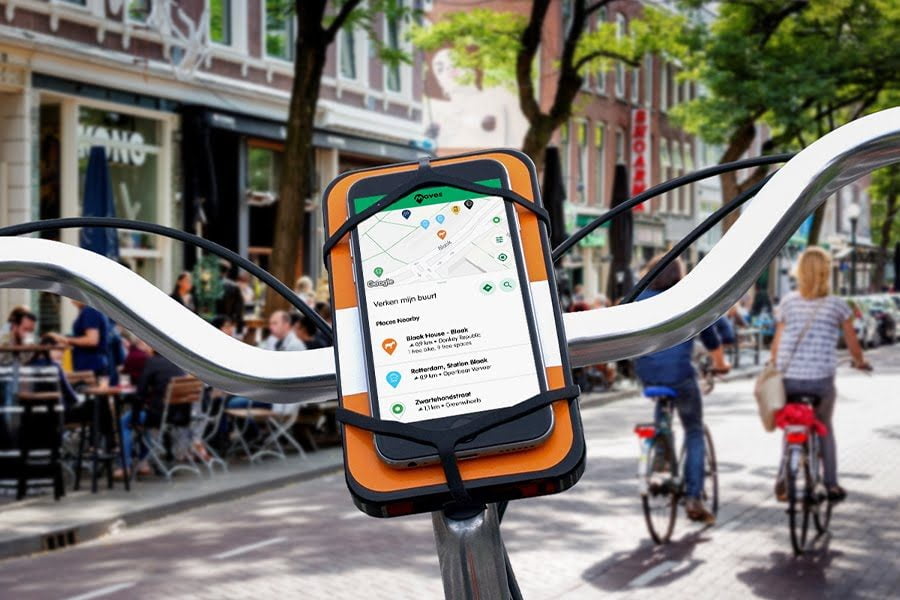It is estimated that in 2020 there were approximately 27.500 shared bicycles in the Netherlands. The majority, almost 75%, consists of NS public transport bicycles. There are now various providers of shared bicycles on the market in the Netherlands, ranging from small-scale local providers (e.g. Cykl in Wageningen) to large-scale providers (e.g. Donkey Republic, worldwide) that mainly offer bicycles in various large cities. Various public transport companies are also active in the market, such as HTM bicycle, KeoBike (Syntus/Keolis Group) and NextBike (ARRIVA).
The shared bicycle mainly replaces local public transport (bus, tram, metro – BTM), walking or the use of one's own bicycle. The use of shared bicycles has no proven effect on bicycle ownership. Users of shared bicycles (excluding public transport bicycles) generally do not often own a car. This is mainly due to the composition of the group of users: young people who live in more urban areas.
The public transport bicycle is primarily a substitute for walking. Thanks to the public transport bicycle, 50% of public transport bicycle users travel more often by train. Whether the shared bicycle has any effects on accessibility and sustainability is unknown for the Dutch situation. This is evident from the research 'Shared car and shared bicycle mobility in the Netherlands: developments, effects and potential' of the Knowledge Institute for Mobility Policy (KiM).

The bicycle-sharing systems can be classified in approximately the same way as the car-sharing systems, but with one major difference. Sharing a private bicycle (C2C systems) also exists, but to a very limited extent via the Peerby sites (Peerby: borrowing and renting things from the neighbours) and spinlister. In fact, three types can be distinguished: station-based, non-station-based, or free-foating, and the emerging hybrid systems. The latter are a combination of station-based and non-station-based.
Station Based Round Trip
The bicycles are in a fixed place and must be returned to that place after use. The NS public transport bicycle is a form of station-based roudtrip. In Zwolle, 'the Zwolle Share Bicycle' is available on a smaller scale. Because the bicycles are returned at the same location (usually a bicycle shed), the system is easily manageable, but less flexible for users.
One way – station based
The bicycles are in a fixed place and can be returned to another fixed place within a certain area. Examples are KeoBike from Syntus-Keolis Group and HTM bicycle. The station-based systems are mainly suitable as a supplement to the public transport network and as a (final) part of a chain movement. They are mainly operated by public transport companies.
Non-station-based Free-floating
The user collects the bicycle and leaves it at a large number of (designated) locations. Free-foating is based on an intricate network of bicycles spread over a city and does not require a specific parking infrastructure. Some providers apply a digital parking infrastructure (geofence technology) whereby they indicate parking zones in an application in consultation with local authorities. Users who park outside these areas cannot close the (digital) lock, which means that the rental of the bicycle continues. Examples of providers are Donkey Republick and GoAbout.
Hybrid:
This is a combination of station-based and free-foating bicycle sharing systems. For example, the bicycle can be picked up from a fixed location of a docking station, and can be returned to a large number of locations without a docking station being present. In Dordrecht, Nextbike offers a hybrid shared bicycle system.
Also read: Donkey Republic shared bikes available via Moves app


